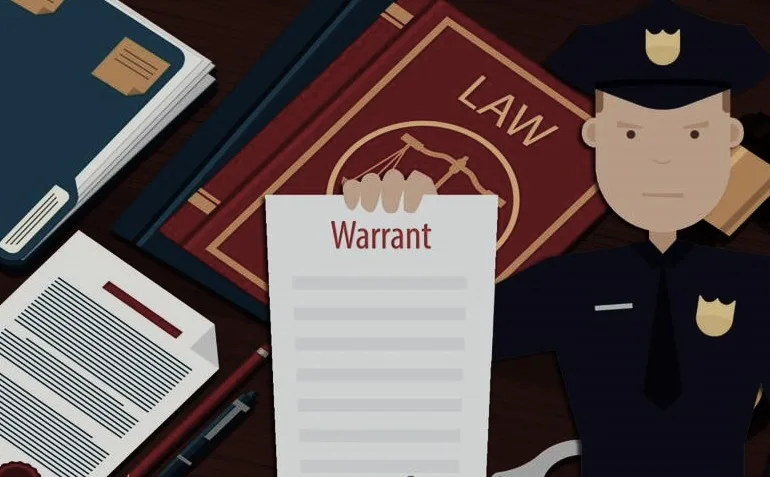Introduction to Bench Warrants
Bench Warrants play a significant role in the legal system. They are orders issued by a judge that authorize the arrest of an individual who has failed to comply with court orders.
These warrants are typically issued in situations where a person does not appear in court as required, fails to pay court-ordered fines, or violates other terms set by the court, such as probation conditions.
Unlike arrest warrants, which are issued based on probable cause for criminal activity, bench warrants are directly related to non-compliance with the judicial process. They ensure that the authority of the court is maintained and that legal obligations are taken seriously.

Issuance of Bench Warrants
- Who Can Issue: Bench warrants are typically issued by a judge or magistrate in a court of law.
- Common Reasons:
- Failure to Appear in Court: When an individual does not show up for a scheduled court appearance.
- Non-Payment of Fines: If court-imposed fines are not paid as required.
- Violating Probation Terms: Breaching any conditions set forth in probation terms.
- Role of Probable Cause: Unlike arrest warrants, probable cause is not always necessary for issuing a bench warrant. Bench warrants are primarily based on direct violations of court orders or failure to comply with legal obligations imposed by the court.
Duration and Expiration of Bench Warrants
- Duration: Bench warrants remain in effect indefinitely. They do not expire and are active until the individual is arrested or the court decides to recall the warrant.
- Factors Affecting Duration:
- Severity of the Original Charge: The nature and seriousness of the original offense can influence how actively the warrant is pursued.
- Jurisdictional Policies: Different jurisdictions may have varying policies on how they handle outstanding bench warrants, particularly for less serious offenses.
- Implications of Expiration: Since bench warrants do not expire on their own, individuals with outstanding warrants must take proactive steps to resolve the situation. This typically involves legal action, such as appearing in court or fulfilling the court’s orders, to have the warrant quashed or recalled.
Consequences of Ignoring a Bench Warrant
- Legal Ramifications:
- Arrest: You can be arrested at any time, as the warrant gives law enforcement the authority to detain you.
- Additional Charges: Ignoring a bench warrant can result in additional legal charges, compounding your legal troubles.
- Potential Jail Time: Depending on the nature of the original offense and the additional charges, you may face jail time.
- Potential Penalties:
- These vary depending on the severity of the original offense for which the bench warrant was issued and the laws of the jurisdiction where the offense occurred.
- Impact on Personal Life:
- Employment: Having an outstanding warrant can affect your current job and future employment opportunities, as it may come up in background checks.
- Travel: You may face restrictions or complications while traveling, especially if required to pass through security checks or customs.
- Public Arrest: There is always the risk of being arrested in public, which can be a distressing experience and may have social or professional repercussions.
Legal Remedies for Handling a Bench Warrant
- Clearing Options:
- Voluntarily Appearing in Court: One of the most straightforward ways to address a bench warrant is to voluntarily appear in court to address the issue that led to the warrant.
- Paying Fines: If the warrant was issued due to unpaid fines, paying them can lead to the warrant being cleared.
- Completing Court-Ordered Actions: Fulfilling any actions ordered by the court, such as community service or attending a court-ordered program, can also resolve the warrant.
- Role of Defense Attorney:
- Advising on Best Course of Action: A defense attorney can provide legal advice on the most appropriate way to handle the bench warrant based on the specifics of your case.
- Representation in Court: The attorney can represent you in court, advocating on your behalf and helping to navigate the legal proceedings.
- Resolving Issues:
- Addressing the Root Cause: It’s important to address the underlying issue that led to the issuance of the bench warrant, whether it’s a missed court appearance, unpaid fines, or probation violations.
- Complying with Court Orders: Ensuring compliance with all court orders is crucial to resolving the warrant and preventing future legal issues.
Bench Warrants in Pennsylvania
- State Specifics:
- Pennsylvania’s legal system has unique laws and procedures for dealing with bench warrants, which may differ from those in other states.
- Handling Steps:
- Contacting an Attorney: It’s advisable to consult with a criminal defense attorney who is familiar with Pennsylvania’s legal system. They can provide guidance on the best course of action.
- Addressing the Court’s Concerns: This typically involves appearing in court to address the reasons why the bench warrant was issued, such as explaining a missed court date or resolving issues related to fines or probation violations.
Bench Warrants in Florida
- State Specifics:
- Florida has its own legal procedures and laws governing bench warrants, which may vary from those in other states.
- Handling Steps:
- Seeking Legal Counsel: It’s important to consult with a Florida-based criminal defense attorney who understands the state’s specific legal nuances regarding bench warrants.
- Complying with Court Requirements: This involves taking steps to address the court’s concerns, such as appearing in court, resolving the issues that led to the warrant (like missed court appearances or unpaid fines), and adhering to any court-ordered actions or conditions.
Conclusion
Bench warrants require immediate attention and understanding their nuances is key to resolving legal issues effectively. Seeking legal advice is crucial in navigating this process.




